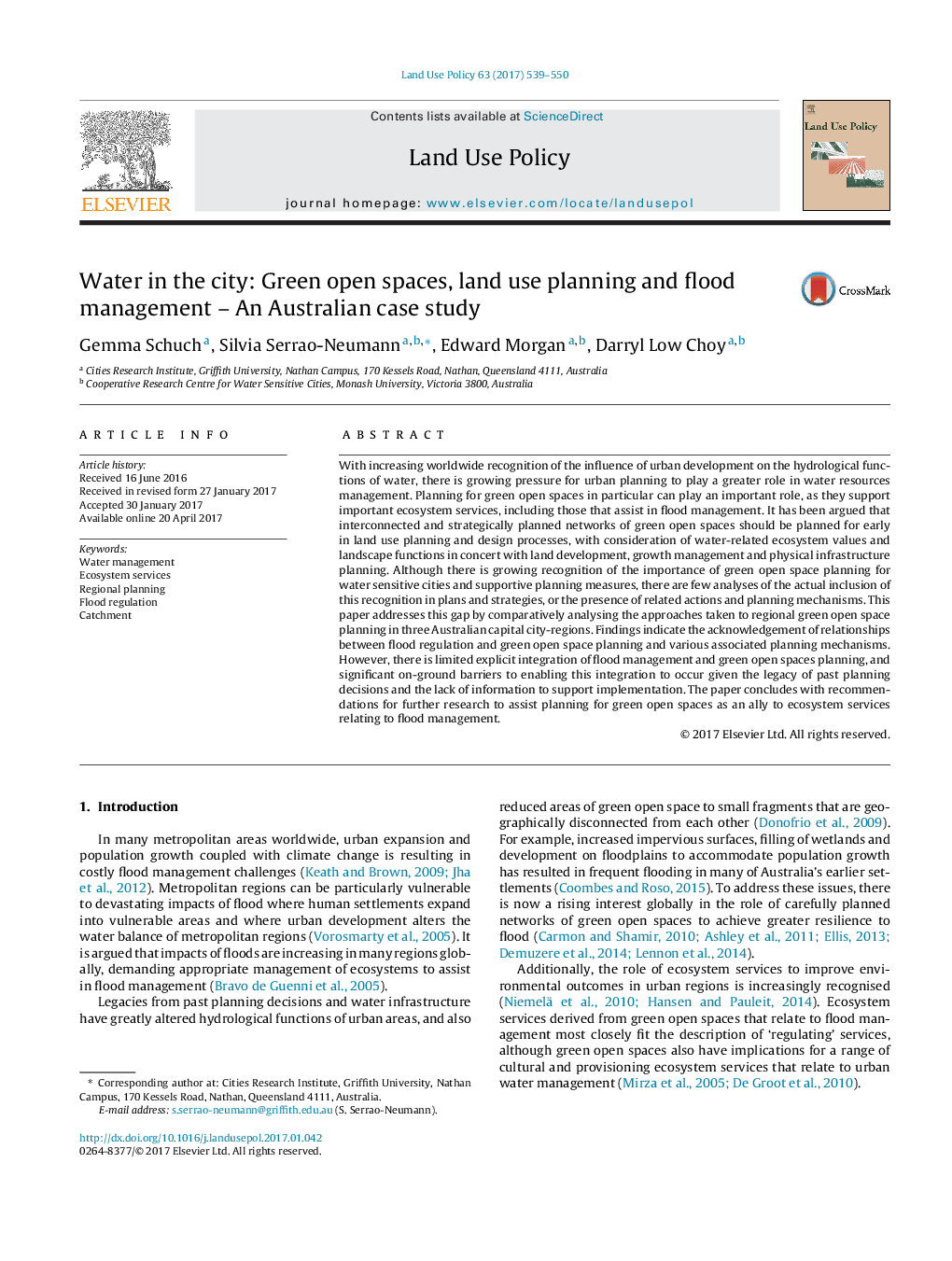| Article ID | Journal | Published Year | Pages | File Type |
|---|---|---|---|---|
| 6461078 | Land Use Policy | 2017 | 12 Pages |
â¢Analysis of flood-related ecosystem services in regional planning of green open spaces.â¢Benefits of green open spaces for flood management are seldom explicitly acknowledged.â¢There is a lack of detailed planning actions to support flood-related ecosystem services.â¢Limited science-based reasoning in policy to support open space planning for flood management.â¢Improved insight on how land use patterns affect flood-related ecosystem services is needed.
With increasing worldwide recognition of the influence of urban development on the hydrological functions of water, there is growing pressure for urban planning to play a greater role in water resources management. Planning for green open spaces in particular can play an important role, as they support important ecosystem services, including those that assist in flood management. It has been argued that interconnected and strategically planned networks of green open spaces should be planned for early in land use planning and design processes, with consideration of water-related ecosystem values and landscape functions in concert with land development, growth management and physical infrastructure planning. Although there is growing recognition of the importance of green open space planning for water sensitive cities and supportive planning measures, there are few analyses of the actual inclusion of this recognition in plans and strategies, or the presence of related actions and planning mechanisms. This paper addresses this gap by comparatively analysing the approaches taken to regional green open space planning in three Australian capital city-regions. Findings indicate the acknowledgement of relationships between flood regulation and green open space planning and various associated planning mechanisms. However, there is limited explicit integration of flood management and green open spaces planning, and significant on-ground barriers to enabling this integration to occur given the legacy of past planning decisions and the lack of information to support implementation. The paper concludes with recommendations for further research to assist planning for green open spaces as an ally to ecosystem services relating to flood management.
